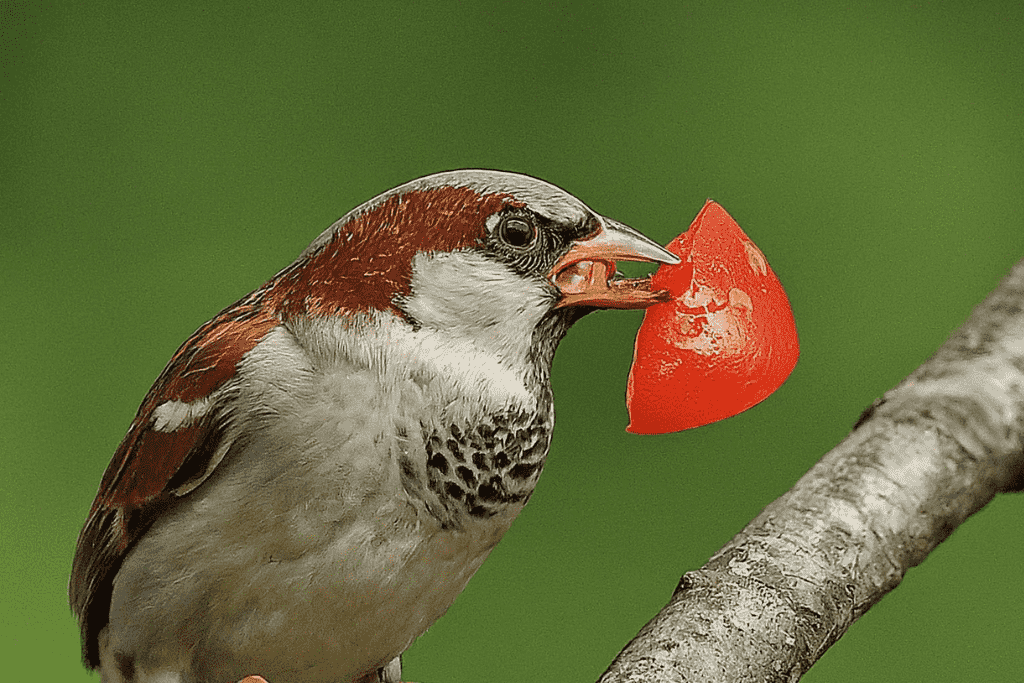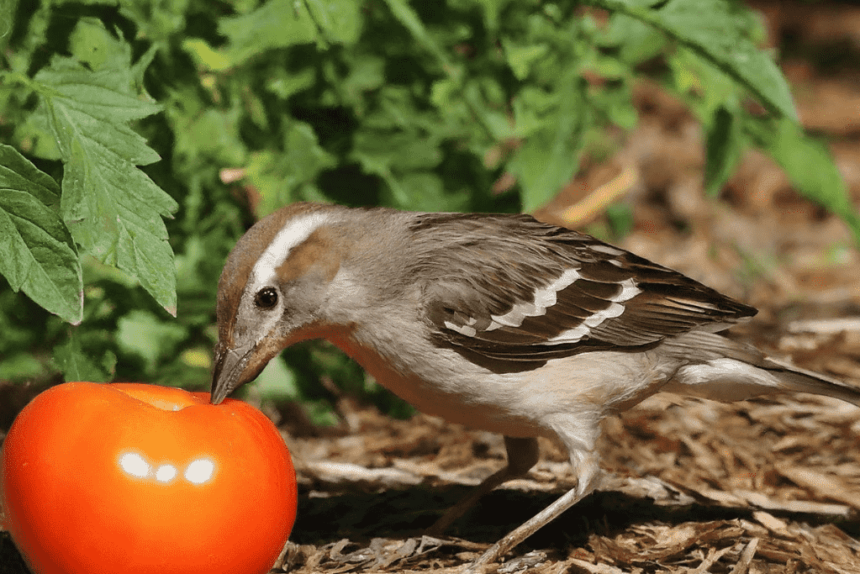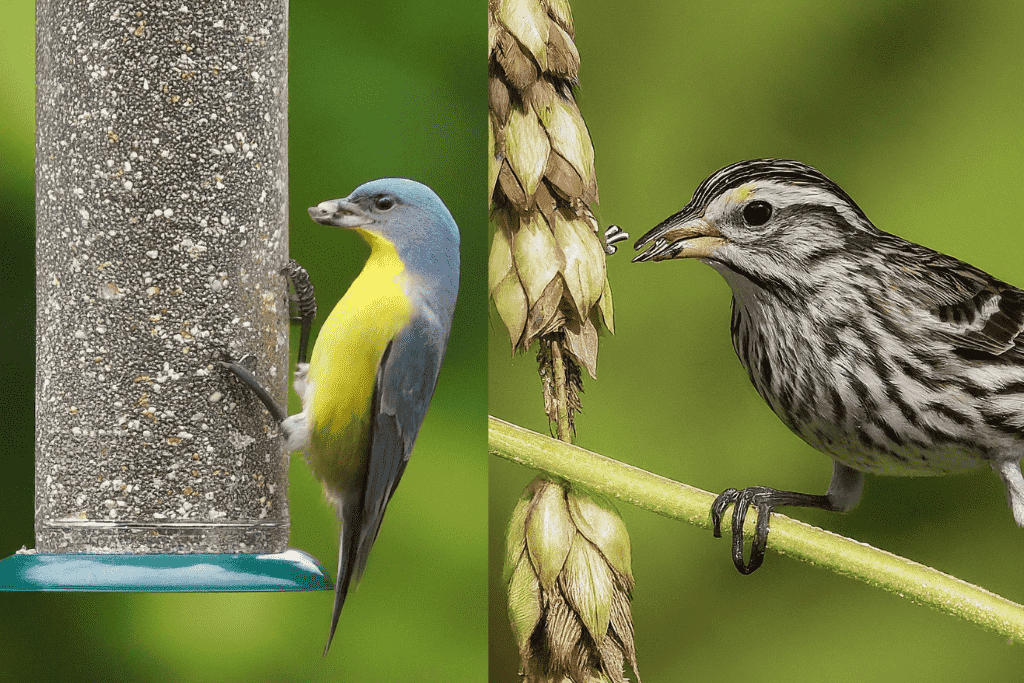Can Birds Eat Tomatoes
Do Birds Eat Tomatoes?
When it comes to gardening, one common concern for many enthusiasts is the impact of birds on their crops. Among the many questions that arise, one that stands out is: Will Birds Eat Tomatoes? This article aims to delve into this question, providing a detailed exploration of the relationship between birds and tomatoes, how to protect your garden, and the benefits of birds in your garden ecosystem.

do birds like tomatoes
Bird diets are diverse, but do birds eat tomatoes? It’s not uncommon to see birds pecking at fruits and vegetables in the garden. While some birds may try to chow down on ripe tomatoes, other birds may not be as interested in this particular fruit. For example, cardinals enjoy berries more than tomatoes.
It’s important to note that different bird species have different preferences when it comes to food. Tomato plants can also attract birds because of their colorful and attractive appearance. Some birds may pluck ripe fruits from the vines while looking for seeds or insects hidden among the leaves.
If you’re interested in observing bird behavior around tomato plants, consider setting up feeders with bird-friendly alternative foods nearby. This way, you can attract feathered visitors without sacrificing your precious tomatoes.

Nutritional Benefits of Tomatoes for Birds
Tomatoes contain many important nutrients that can help bird feed. These bright red fruits are packed with vitamins and minerals, e.g.
Vitamin C: An antioxidant that boosts the immune system and helps with tissue repair.
- Vitamin A: Essential for healthy eyes and skin.
- Vitamin K: Important for blood clotting and bone health.
- Potassium supports heart function and muscle contraction.
- Folate: Helps cell division and growth.
In addition to these vitamins, tomatoes contain lycopene, a powerful antioxidant that can help reduce the risk of chronic diseases. When fed in moderation, tomatoes can be a nutritious addition to the bird’s diet.
Potential Risks of Feeding Tomatoes to Birds
Despite the nutritional benefits of tomatoes, there are some potential risks for birds. It is important to be aware of these potential risks:
- Solanine poisoning: Tomatoes belong to the nightshade family, which contains solanine, a toxin found in the green parts of the plant, including leaves and stems, eating these parts can be harmful to birds and can cause digestive issues or even poisonous.
- Acidity: Tomatoes are acidic, and can cause stomach upset and digestive upset in some birds.
- Pesticides: Inorganic tomatoes can produce pesticide residues that can be harmful to birds. Always wash tomatoes thoroughly and choose the organic variety.
To eliminate these risks, it is important to feed tomatoes to birds in a safe and controlled manner.

Safe Ways to Offer Tomatoes to Birds
When adding tomatoes to your bird feed, follow these best practices for safety and well-being.
Remove the green parts
Always remove green leaves, stems and unripe green tomatoes before feeding them to birds. These parts contain solanine and should be avoided.
Serve in a proper manner
To prevent digestive issues, limit the amount of tomatoes birds can eat. Tomatoes should be an occasional treat rather than a staple.
Rinse thoroughly
Rinse tomatoes thoroughly to remove residual pesticides. Organic tomatoes are good because they do not contain harmful chemicals.
Cut into appropriate sizes
Cut tomatoes into manageable chunks to avoid choking hazards and make them easier for birds to eat.
Observe how your bird behaves
Keep an eye on your bird after eating tomatoes for the first time. If you notice signs of indigestion or constipation, stop eating tomatoes immediately.
Tomatoes and Different Bird Species
Not all birds will react to tomatoes in the same way. It is important to consider the feeding requirements and preferences of different birds:
Cockroaches and other insects
Geese and geese can enjoy tomatoes as part of their diet. These birds generally enjoy a variety of fruits and vegetables, and tomatoes can provide a delicious and nutritious meal. However, because of its acidity, tomatoes should be fed in moderation.
Canary and Finch
Canaries and finches can enjoy a few tomatoes. Their small size means that they should be fed even smaller portions, and their reaction to this new diet should be carefully monitored.
Birds of the field
If you have bird feeders in your garden, you may wonder if wild birds could benefit from tomatoes. Although some wild birds hunt tomatoes, they should be fed species-specific feeds to meet their nutritional needs, without the risks associated with solanine and acidity.
Alternatives to Tomatoes for Birds
While tomatoes can be a healthy treat in moderation, there are plenty of other fruits and vegetables that are safe and beneficial for birds:
- Apples (without seeds)
- Carrots
- Peppers
- Blueberries
- Broccoli
These alternatives can provide a range of nutrients and flavors, keeping your bird’s diet varied and exciting.
Conclusion
In conclusion, tomatoes can be a nutritious addition to a bird’s diet when offered safely and in moderation. By understanding the benefits and risks, bird owners can make informed decisions about incorporating this vibrant fruit into their avian companion’s meals. Always prioritize the health and safety of your bird by following the best practices outlined in this article.







